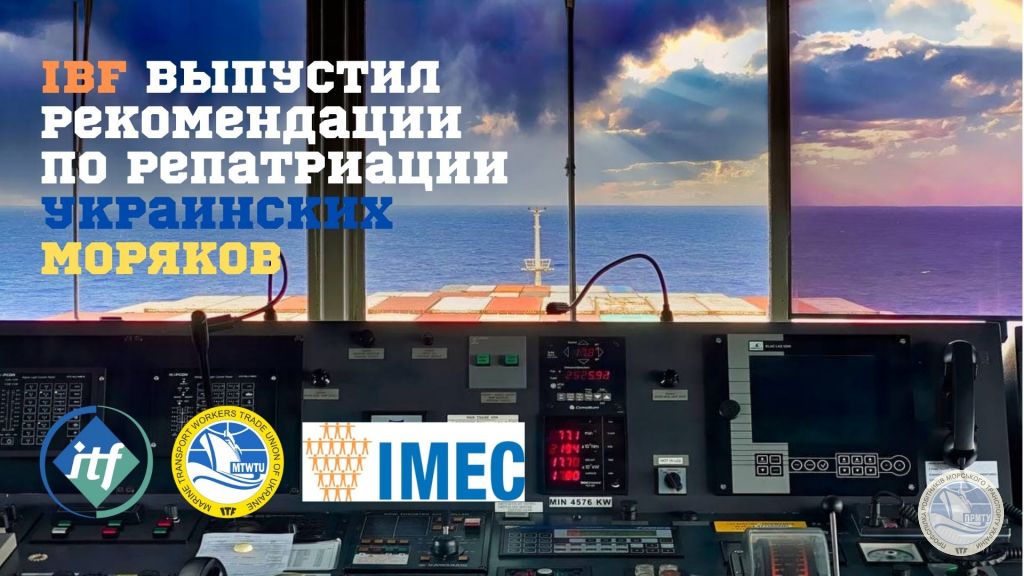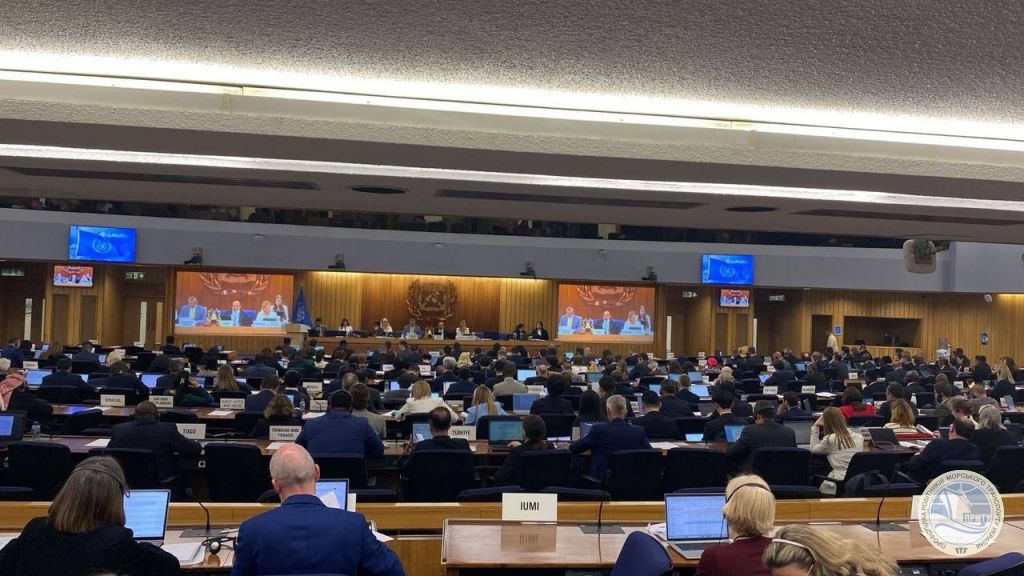The Maritime Labour Convention provides clear guidelines when it comes to seafarers’ repatriation and the most relevant info is contained in Guideline B2.5.1 – Entitlement para 6
- Each Member should require that shipowners take responsibility for repatriation arrangements by appropriate and expeditious means. The normal mode of transport should be by air. The Member should prescribe the destinations to which seafarers may be repatriated. The destinations should include the countries with which seafarers may be deemed to have a substantial connection including:
a.the place at which the seafarer agreed to enter into the engagement;
b.the place stipulated by collective agreement;
c.the seafarer’s country of residence; or
d.such other place as may be mutually agreed at the time of engagement
The Russian invasion of Ukraine and consequent travel restrictions has made this process all but impossible for Ukrainian residents and these guidelines are intended to help IBF maritime employers through the process of agreeing mutually satisfactory alternative arrangements with their affected employees.
The social partners have discussed the many potential ramifications of the current situation and have agreed that they would support a number of actions aimed at achieving a compromise in light of the fact that perhaps the MLC and the IBF Framework were not conceived with scenarios such as this in mind.
Our key recommendation is that, whenever possible, affected seafarers are encouraged to extend their contracts and remain onboard. Repatriation request should be considered on compassionate grounds and in accordance with the MLC.
When considering disembarkation however, it is important to note that the recommendations below are seen as a minimum standard and that employers are encouraged to do more if they are able to, also all deviations from the standard process should be documented by way of a signed agreement between the parties to the SEA:
- Seafarers that have either finished their contract, at the agreed contractual limit or through extension within the MLC limits, or wish to terminate their contract early because of events in their country of residence. They have mutually agreed to be repatriated to a third country but intend to continue to travel by land or se
ato their original place of engagement or home.- They should continue to be treated as in transit until the day they land in the agreed third country. This is where the employment terminates.
- They should be able to claim all expenses incurred to reach the Ukrainian border. Ideally these expenses should be pre-agreed, and employers should exercise flexibility when it comes to expense claims that cannot reasonably be supported by official receipts.
- When needed, employers should provide full board and lodging free of charge in the agreed third country for a minimum of 2 nights.
- Seafarers that belong to category 1 but wish to remain in the agreed third country
- They should continue to be treated as in transit until the day they land in the agreed third country. This is where the employment terminates.
- When needed, employers should provide full board and lodging free of charge in the agreed third country for a minimum of 2 nights.
- Dismissals shall be dealt with according to the normal provisions provided for within the relevant IBF CBA however they should be repatriated to an agreed third country. When asked, employers should provide full board and lodging free of charge in the agreed third country for a maximum of 2 nights.
- Once fit to travel without the need for further treatment the seafarer should be repatriated in accordance with either 1 or 2 above;
- if further medical treatment is required the employer shall repatriate the seafarer to a mutually agreed country where such treatment could be offered in accordance with the relevant IBF CBA. It is recommended that the employer seeks the support of their liability underwriter/P&I club prior to repatriation.
- Employers’ liabilities should also continue in accordance with the IBF Framework (article 22.3) and the agreed third country should be considered as equivalent to the country of residence from this perspective.
- The same provisions as those recommended for group 1 will apply in when 130 days have passed or until a medical determination is made according to Article 25 of the IBF Framework (depending on whether the medical disembarkation was due to illness or an accident).
3.Seafarers that have been dismissed on disciplinary grounds
4.Seafarers that require Medical disembarkation






